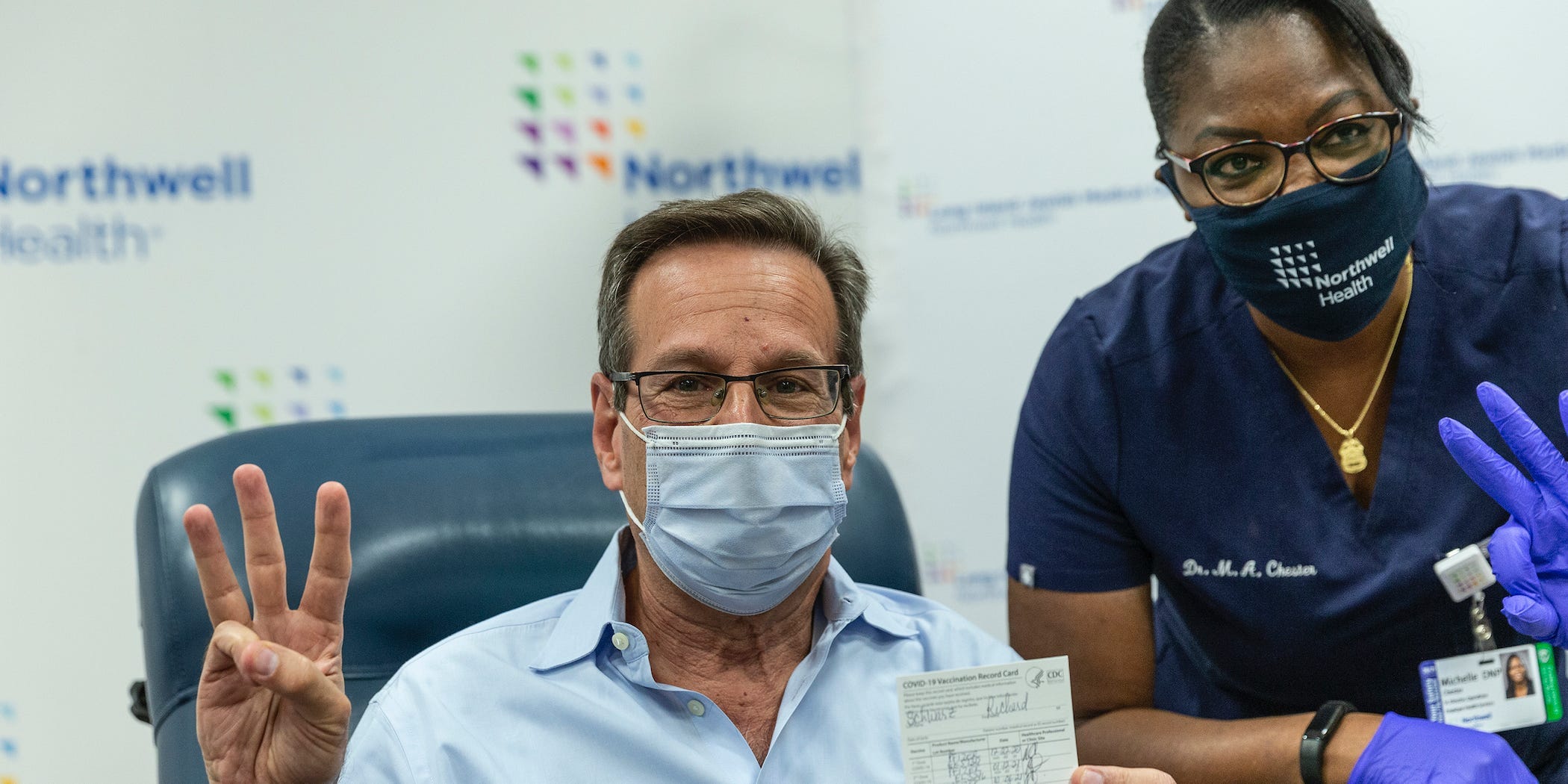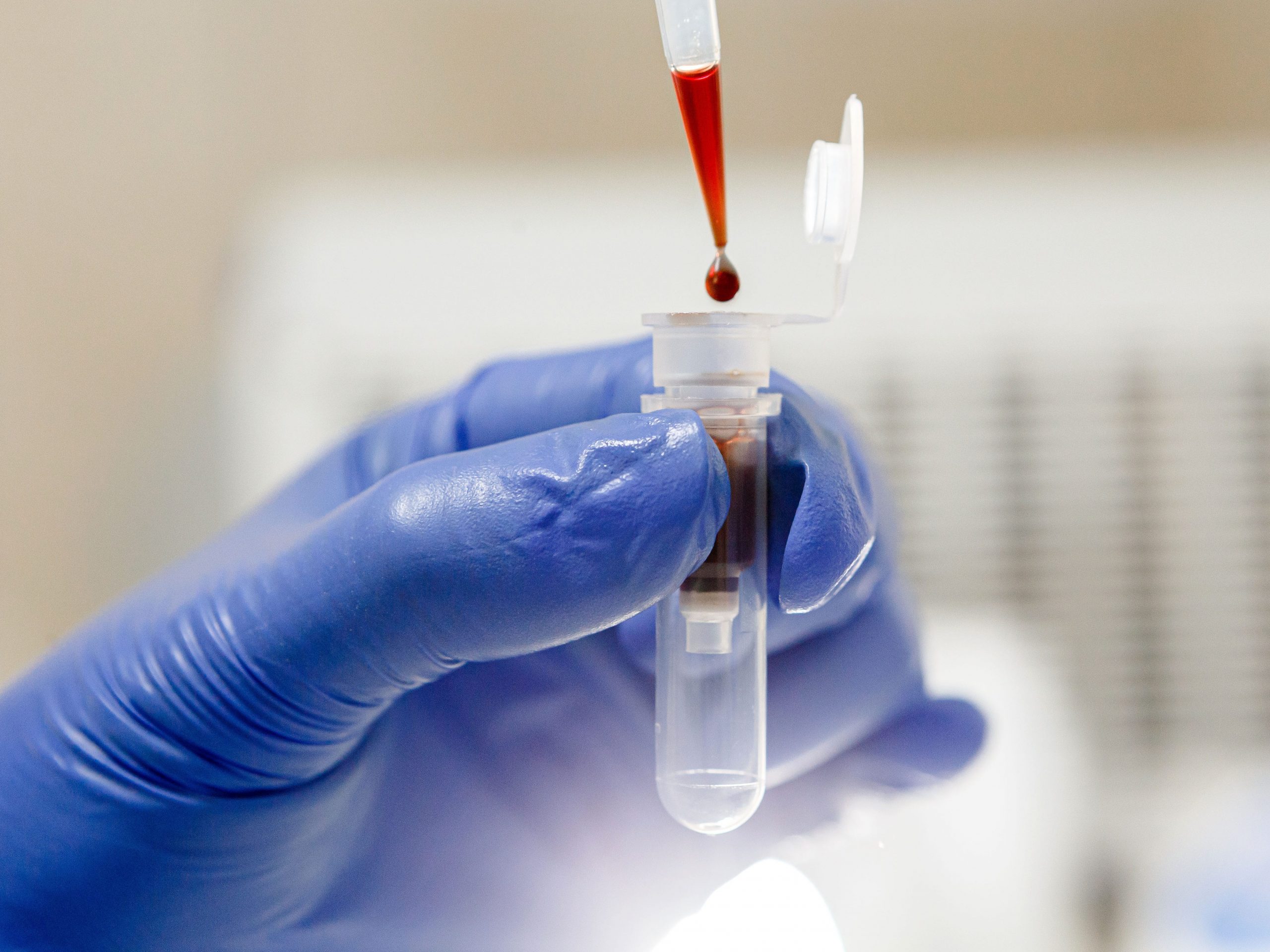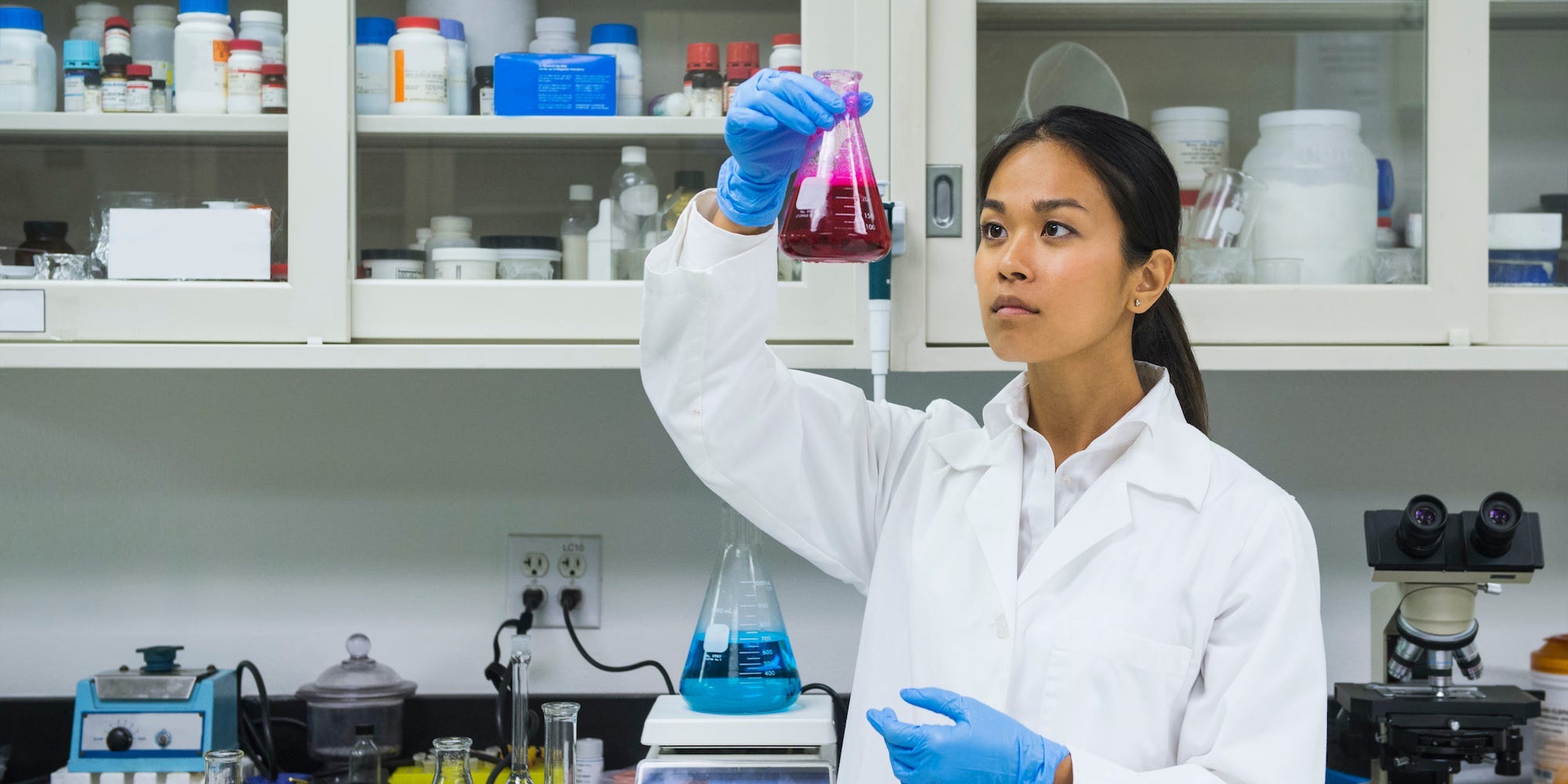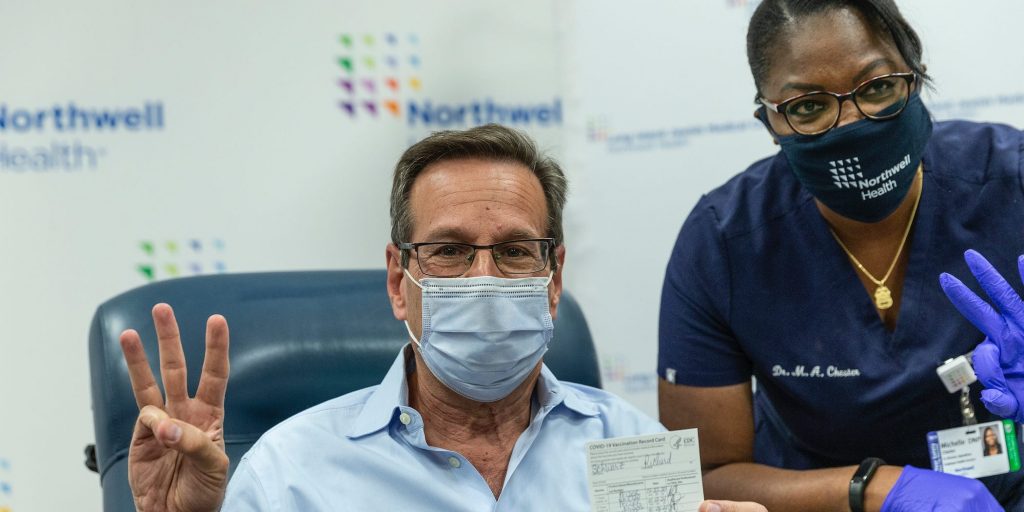
- Lab studies found antibodies from vaccines bind less well to Omicron compared to previous variants.
- These studies are done using blood samples, and some are estimates using similar viruses, not Omicron.
- Most experts predict vaccines, particularly after boosters, will still offer protection against severe COVID-19.
The scientific community is scrambling to understand the Omicron variant, and we've gotten the first looks at how much protection COVID-19 vaccines might provide against it.
As of Friday afternoon, at least four research groups worldwide had shared results from laboratory studies, pitting Omicron (or a similar "pseudovirus") against blood samples from people with a range of vaccination statuses.
These early results are still preliminary, and are tricky to draw firm conclusions from. They are small samples, and the studies are ongoing, so the exact figures will likely change as more data comes in. Since they are done in a lab, they are not reflective of real-life settings. Finally, none of these findings were published in medical journals or formally reviewed by experts.
However, they are a start for experts to begin building a picture of what kind of threat Omicron could pose, providing findings that are both reassuring and concerning. Omicron has 32 mutations in the part of the virus that existing vaccines target.
Above all, researchers are trying to establish to what extent Omicron evades our vaccines. An elephant in the room, even with these studies in hand, is we still don't know how harmful Omicron is compared with Delta — a highly infectious strain itself, which is still dominant worldwide.
Here's what each of these four laboratory studies has shown:
1. Pfizer-BioNTech's study found a booster shot could restore protection to original levels

What the study entailed:
- Scientists analyzed 19 or 20 blood samples from people who got two or three doses of the Pfizer-BioNTech vaccine.
- They tested at peak immunity — three weeks after the second shot or one month after the booster.
- Researchers used a pseudovirus, a quicker but less reliable method than working with live virus.
- They were comparing how the vaccines worked against Omicron to the "ancestral" coronavirus strain — in other words, the first version of the virus detected in 2019.
What they found:
- For those who received two doses of the vaccine, neutralizing antibody levels fell 25-fold, or by 96%
- Double-vaccinated still had some level of neutralizing activity against Omicron. Protection was partially — not completely — evaded.
- Double-vaccinated still benefit from T cells, a second line of protection in the immune system.
- Two doses could still protect against severe disease, despite low antibody levels.
- Triple vaccinated — i.e., those who'd received booster shots — had far higher antibody levels against Omicron.
- Researchers said the booster restored antibody levels to same titers seen after two doses against the original strain.
Takeaways:
Executives at Pfizer and BioNTech have said this study shows boosters are an essential part of a person's vaccine series to protect against Omicron.
Like the other three lab studies, Pfizer-BioNTech mainly focused on antibodies — the best lab proxy we have for vaccine effectiveness — but scientists can't agree on exactly what they mean for the level of protection against Omicron.
Antibodies are just one aspect of the immune response. Antibodies stop the virus from infecting the cells. Once in the body, however, other immune components (T cells and memory B cells from vaccines or previous infections) stop us from getting sick or dying.
The fact that scientists used a pseudovirus is an important caveat — it is not the same as Omicron.
South African study found 40-fold plummet in antibodies
What the study entailed:
- Scientists tested 14 blood samples from 12 people with a live virus sample.
- All 12 people had received two doses of Pfizer's vaccine.
- Six of the 12 people had previously been infected with COVID-19.
What they found:
- Omicron reduced antibody levels by 40-fold compared to original strain.
- Previously infected had higher antibody levels against Omicron than those just vaccinated.
Takeaways:
Again, this study looked at antibodies as a proxy for immune response. We do not know how T cells and B cells would be impacted.
A caveat here is that the researchers didn't analyze blood samples from boosted people. They also looked at a small number of blood samples, so the severity in reduction of antibodies is likely to change with more data.
Swedish study has few specifics but shows modest antibody drop

What the study entailed:
- Karolinska Institutet studied 34 blood samples, half from random blood donors and half from previously infected healthcare workers.
What they found:
- Not as dramatic of a decline as the South African study: antibody levels dropped by about 5- to 7-fold
Takeaways:
As with the other studies, this study looked at antibodies, it does not account for the entire immune response that would take place inside the body.
Some other caveats: It's unclear if all the blood samples were from vaccinated people, and there were no details provided on how long ago they were vaccinated or if they were boosted. The fact that scientists used a pseudovirus is also important — it is not the same as Omicron.
University Hospital Frankfurt finds sizable antibody drops in range of vaccine recipients
What the study entailed:
- Researchers tested blood samples from 117 people with range of vaccination statuses.
- The samples represented a wide range of people, aged 20 to 93, and anywhere from two weeks after vaccination to seven months out.
- They used live virus of Omicron compared it to Delta responses
What they found:
- Sizable antibody reductions ranging from 11-fold to 37-fold drops for people who got Pfizer, Moderna, or AstraZeneca vaccines, including boosters.
- They still saw detectable neutralization levels among triple vaccinated — i.e., those who had received a booster.
Takeaways:
The same caveat applies here as with all the other studies: they were measuring antibodies as a proxy for immune response. We do not know how T cells and B cells would be impacted.
While the study covered more than 100 blood samples, they made up a wide range of vaccination statuses and ages. Once the groups were broken down by vaccination status — such as triple-vacccinated with two doses of Moderna and a Pfizer booster — they were much smaller in size, meaning the results could change as more data comes in.
A highlight of this study is that it's the first data we've seen on the AstraZeneca and Moderna shots.
8 key questions that remain unanswered as experts turn their eyes to real-world research

Despite some of the worrying-sounding drops in antibodies, experts still have faith in T cells and B cells trained by our vaccines. For this reason, most experts have predicted that, particularly after a booster dose, vaccines will protect against severe COVID-19 caused by Omicron, despite a possible reduction in antibody binding.
Peter Openshaw, professor of experimental medicine at Imperial College, said in a webinar Thursday, that we were beginning to see some of those lab based tests showing lower degrees of antibody binding, but still some binding.
"Which is sort of a bit reassuring, but we shouldn't jump to any great conclusions until we actually can see epidemiologically," he said.
Some unknowns remain:
- Will Omicron out-compete or co-circulate with the Delta variant?
- Is Omicron more transmissible than Delta? If so, how, and by how much?
- Does Omicron typically cause more severe or milder disease compared with Delta?
- How well are people protected against infection with three doses?
- How long does protection from existing COVID-19 vaccines last?
- Should kids also get a third dose?
- Will fourth doses be required in 2022?
- What is the ideal time interval between the second and third doses?
